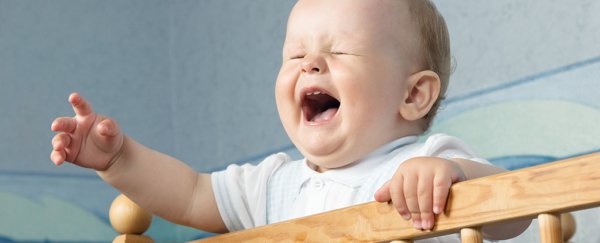Bringing a child into the world can be the most joyful and rewarding experience of a person's life, but it doesn't come with happiness guaranteed. A new study has found that the birth of a couple's first baby is potentially more upsetting than divorce, unemployment, or the death of a partner.
Researchers studied the lives of 2,016 Germans to investigate the difference a new child had made. Exhaustion from breastfeeding problems, a general lack of sleep, related depression, domestic isolation, and a breakdown in relationships were all listed as potential causes for a dip in happiness, together with "the continuous and intense nature of childrearing", they report. Both women and men reported similarly negative feelings, suggesting the pain and effort of childbirth itself isn't so much of a factor as what comes afterwards.
The main aim of the research was to figure out why a lot of couples don't have as many children as they originally say they want. Rachel Margolis, a sociology researcher from the University of Western Ontario in the US, and Mikko Myrskylä, director of the Max Planck Institute for Demographic Research in Germany, hypothesise that it's because of bad experiences associated with having their first child. Older parents and those with higher education were found to be more likely to change their plans after going through childbirth the first time around.
Those who took part in the study were asked to answer the question: "How satisfied are you with your life, all things considered?" A score of 0 equated to completely dissatisfied and 10 stood for completely satisfied. Within the first two years of having their child, less than a third of parents remained at the same level of happiness (or got happier), whereas 37 percent reported a one-unit drop, 19 percent a two-unit drop, and 17 percent a three-unit drop.
The average dip in contentment across all respondents was 1.4 units, which is considered a substantial one. Other studies have put the fall for divorce at 0.6 units, unemployment at 1 unit, and the death of a partner at 1 unit. The study reveals that "Fertility is a choice for most people in the developed world," says Ariana Eunjung Cha at The Washington Post. "If the transition to parenthood is very difficult or more difficult than expected, then people may choose to remain at parity."
And that's certainly the case in Germany, where the average birth rate has been stuck at 1.5 children per woman for the past four decades - despite most couples saying they want two children when surveyed. The new findings suggest countries wanting to increase their population should look at improving support and help for parents having their first child, otherwise they may not ever want to repeat the process again.
The results were published in Demography.
